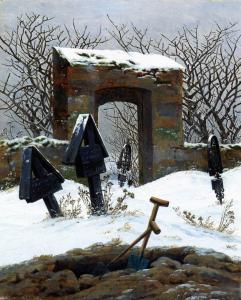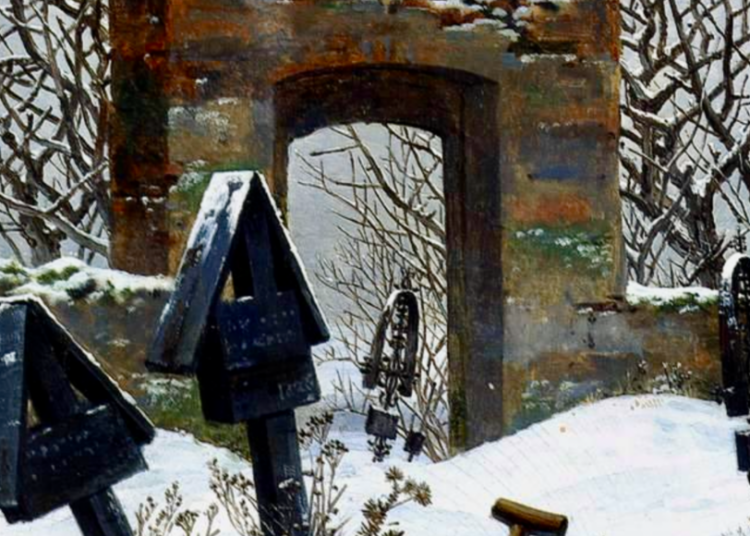More and more I am convinced that our ultimate human fate will depend on whether or not we succeed in wresting the intellectual life from the professoriate. Doesn’t the whole intellectual world stand or fall on this distinction: whether our intellectual understandings are mere inventions, or whether they are authentic discoveries?
 One purpose of cultivating true religion is to teach instincts how to function as protections, so that souls may turn the invasions of the ultra-subtle to learning moments rather than occasions for hapless subjection. The ultra-subtle rains continually into human life like cosmic dust, and for the most part these invasions are absorbed without conscious awareness. This arena of spiritual battle has been tucked away out of sight nowadays; we call it the “Unconscious,” and thus feel we have understood it. In this way we relinquish the knightly task—the part of us that needs to be awake, the part that needs to fight and oppose—the part that needs to keep the sword ever-sharp and at the ready. Important areas of our human experience are thus left exposed to the forces of devastation.
One purpose of cultivating true religion is to teach instincts how to function as protections, so that souls may turn the invasions of the ultra-subtle to learning moments rather than occasions for hapless subjection. The ultra-subtle rains continually into human life like cosmic dust, and for the most part these invasions are absorbed without conscious awareness. This arena of spiritual battle has been tucked away out of sight nowadays; we call it the “Unconscious,” and thus feel we have understood it. In this way we relinquish the knightly task—the part of us that needs to be awake, the part that needs to fight and oppose—the part that needs to keep the sword ever-sharp and at the ready. Important areas of our human experience are thus left exposed to the forces of devastation.
I wish to describe an infinitely small incident recently that took place in the question-and-answer session following a talk on the “ghostly tales” of Russell Kirk. An academic scholar read a long paper, lasting an hour, about Russell Kirk’s literary works, and he used the term “experiments” to describe Kirk’s ventures into supernatural fiction. This academic paper, competent and detailed though it was, seemed long. The mood lightened considerably when Dr. Kirk’s widow spoke, telling stories and filling in some of the human background of her life with Russell Kirk, and some of the characters in his stories.
During the questions, I raised my hand and indicated that I was directing my comment to the scholar. I mentioned that I had read Kirk’s Lord of the Hollow Dark, a novel of supernaturalism inspired by T.S. Eliot’s poem, The Wasteland, also Watchers of the Strait Gate, a collection of short stories. I recalled having read Dr. Kirk’s introduction to said stories, in which he made the point that such fictions were “experiential.” That was to say or to affirm that the encounters with mystery and supernatural were, for Russell Kirk, real experiences—not mere “experiments.”
A kind of icy shudder held for a split second, while the professor appeared to wrestle with my comment as with an invisible opponent, finally throwing it down upon the ground in a gesture of spurning rejection. I don’t know if it was anything that he said, or indeed if he said anything. I attest to feeling a sense of panic, fear, or rejection emanating from him. For if what I said was true, then all the professor’s careful delimitation of Kirk’s supernaturalism could not be true. For how can a “ghostly tale” be a mere experiment, given what Kirk himself had written, and given the premise of his tales?
This premise was well stated by T.S. Eliot when he wrote something to the effect that that the authentication of religion lies in the fact that spiritual reality is a discovery, not an invention. An “experiment” is an invention; an “experience” is a discovery. But doesn’t the whole intellectual world also stand or fall on this distinction as well—that is, whether our intellectual understandings are mere inventions, or whether they are authentic discoveries? I think that the professor knew this— “subliminally,” not consciously—and that he was profoundly chagrined that my question had “exposed” him. My question forced him for a moment to war with himself, for it brought up the issue of the validity of the paper he had just read.
Mrs. Kirk, true to her Catholic upbringing and gracious sense, decisively saved the moment by remarking, “That is a good point,” and a palpable sigh of relief seemed to move through the room like a lifting shadow. She took the professor’s own muteness from him, and rode the reproach of his unsaid words to joyous victory.
More and more I am convinced that our ultimate human fate will depend on whether or not we succeed in wresting the intellectual life from the professoriate. I believe that in this little tiny incident, Satan, or one of his minions, had come to call—that he left us his calling card in that momentary ice, that hushed uncertainty and fearful anticipation. The moment called for a decision, and the execution of such decision is only possible for someone with trained instincts. The human and gracious religiously-cultivated goodwill of Mrs. Annette Kirk was able to cut through the fog of the soul of a man dangling in the pride of Satan—which is to say, a man unwilling to renounce his pride.
Above all, Satan wants to form a wall of inventiveness around the exercise of intellect, so that there will be no real experience to suggest intercommunion—whether among souls, or between souls of this world and the spiritual world. Mrs. Kirk demonstrated how Catholics, trained in the Holy Obedience, can win through to the Holy Initiative—by keeping the doors to the worlds open.
The Imaginative Conservative applies the principle of appreciation to the discussion of culture and politics—we approach dialogue with magnanimity rather than with mere civility. Will you help us remain a refreshing oasis in the increasingly contentious arena of modern discourse? Please consider donating now.
The featured image is “Graveyard under Snow” (1826) by Caspar David Friedrich, and is in the public domain, courtesy of Wikimedia Commons.


